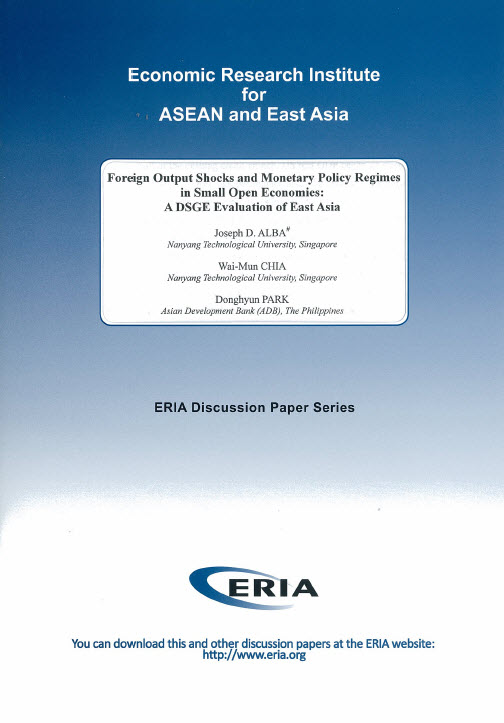Foreign Output Shocks and Monetary Policy Regimes in Small Open Economies: A DSGE Evaluation of East Asia

Date:
1 December 2011Category:
Finance and Macroeconomy, Trade, Regulation and GovernanceType:
Discussion PapersTags:
Print Article:
Abstract
East Asia's small open economies were hit in varying degrees by the sharp drop in the output of major industrial countries during the global financial and economic crisis of 2008-2009. This highlights the role of monetary policy regimes in cushioning small open economies from adverse external output shocks. To assess the welfare impact of external shocks on key macroeconomic variables under different monetary policy regimes, we numerically solve and calculate the welfare loss function of a dynamic stochastic general equilibrium (DSGE) model. We find that CPI inflation targeting minimizes welfare losses for import-to-GDP ratios from 0.3 to 0.9. However, welfare under the pegged exchange rate regime is almost equivalent to CPI inflation targeting when the import-to-GDP ratio is one while the Taylor-type rule minimizes welfare when the import-to-GDP ratio is 0.1. We calibrate the model and derive welfare implications for eight East Asian small open economies.




